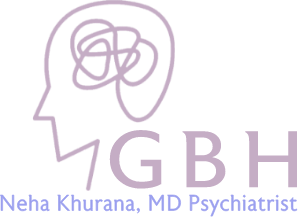
- March 28, 2025
Women’s Mental Health & Well-Being: The Mind-Body Connection
From hormonal shifts to life transitions, women’s mental health is deeply connected to their physical well-being. While every person experiences stress, anxiety, or mood changes at times, women face unique challenges that can make these experiences more frequent or intense, for example, postpartum depression after pregnancy. Understanding this mind-body connection is key to supporting long-term health and balance.
The Role of Hormones in Women's Mental Health
- Premenstrual Syndrome (PMS) and Premenstrual Dysphoric Disorder (PMDD) can trigger anxiety, irritability, or depression.
- Pregnancy and Postpartum bring dramatic hormonal changes that can lead to mood swings or postpartum depression.
- Menopause often comes with sleep issues, brain fog, and emotional sensitivity due to a drop in estrogen.
Societal Pressures & Emotional Load
Beyond biology, many women carry the weight of societal expectations. Balancing work, family, caregiving, and personal needs often means putting others first—leaving little room for rest or self-care. Over time, this emotional load can contribute to general anxiety, burnout, and depression.
Being “strong” doesn’t mean handling everything alone. Asking for help, setting boundaries, and prioritizing your mental health are essential, not optional.
One Conversation Can Change Everything! Consult Dr. Neha Khurana for
Life Transitions and Identity Shifts
Supporting the Mind-Body Connection
- Move your body: Regular physical activity boosts mood, reduces anxiety, and helps regulate sleep.
- Eat nourishing foods: A balanced diet supports hormone balance and energy levels.
- Sleep well: Quality rest helps your brain and body reset.
- Connect socially: Strong relationships provide emotional support and reduce isolation.
- Practice mindfulness: Deep breathing, journaling, or meditation can help manage stress.
- Seek professional help: Therapy, medication, or integrative treatments like TMS therapy or IV therapy can offer relief when things feel overwhelming.
One Conversation Can Change Everything! Consult Dr. Neha Khurana for
You Don’t Have to Go Through It Alone
At Georgia Behavioral Health, we understand the unique mental health needs of women. Whether you’re navigating postpartum changes, midlife transitions, or chronic stress, we’re here to support your journey to wellness.
Ready to take the next step?
Reach out today to schedule a consultation or learn more about personalized treatment options.
